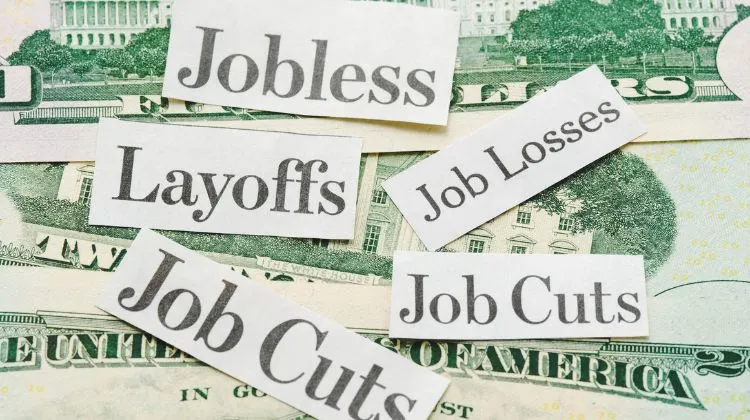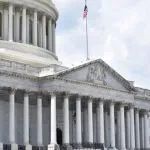The Department of Veterans Affairs (VA) is facing a major shakeup as the White House plans to cut 80,000 jobs. This dramatic reduction in workforce has sent shockwaves through the veteran community. Many are concerned about the future of veteran care and benefits.
The VA serves millions of veterans across the country. It’s no stranger to challenges, but the scale of these proposed cuts is unprecedented. As the second-largest federal agency, the VA employs nearly half a million people.
So why is this happening now? And what will it mean for the veterans who rely on VA services? Let’s explore the details of this controversial move.
Table of Contents:
- The Scope of the VA Job Cuts
- The Rationale Behind the 80000 Veterans Affairs Jobs to be Cut
- Concerns and Criticisms
- Potential Impacts on Veteran Care
- The Political Landscape
- Looking Ahead: What’s Next for the VA?
- FAQs about 80000 Veterans Affairs jobs to be cut
- Conclusion
The Scope of the VA Job Cuts
According to an internal memo obtained by AP News, the Department of Veterans Affairs is planning to lay off 80,000 workers. This is part of a sweeping agencywide reorganization. This represents over 15% of the VA’s current workforce of about 482,000 employees.
The goal is to return VA staffing levels to what they were in 2019. This would essentially erase the staffing increases made during the Biden administration. It includes those hired to implement the 2022 PACT Act, which expanded benefits for veterans exposed to toxic substances.
Who Will Be Affected?
While the full details aren’t yet clear, early indications are that the cuts will impact employees across many areas of the VA. See the list below.
- Administrative and support staff.
- IT and technical roles.
- Facilities and maintenance workers.
- Some medical support personnel.
Importantly, VA leadership has stated that front-line medical providers like doctors and nurses will largely be protected from layoffs. However, even cuts to support staff could indirectly impact patient care. Cutting support staff may slow down other processes that are important for care.
It’s also worth noting that veterans themselves make up a significant portion of VA employees. According to the VA, over 25% of the VA’s workforce is comprised of veterans. This means thousands of veterans could potentially lose their federal jobs as a result of these VA cuts.
The Rationale Behind the 80,000 Veterans Affairs Jobs to be Cut
The Trump administration has framed these cuts as an effort to streamline the VA and improve efficiency. Veterans Affairs Secretary Doug Collins released a video statement defending the move.
He said, “Now, we regret anyone who loses their job… But the federal government does not exist to employ people. It exists to serve people.”
The White House echoed this sentiment. A spokesperson stated that President Trump “refuses to accept the VA bureaucracy and bloat that has hindered veterans’ ability to receive timely and quality care.” This is similar language that the White House has previously said in official statements.
This push for efficiency is part of a broader effort. The effort is being led by the Department of Government Efficiency, spearheaded by Elon Musk. The effort is made to reduce the size of the federal workforce across multiple agencies.
Concerns and Criticisms
While the administration promotes efficiency, many veterans groups and lawmakers have serious concerns. These concerns are about the impact of such dramatic cuts.
Potential Decline in Services
Critics argue that reducing staff by 15% will lead to longer wait times. They feel it will cause reduced availability of services, and lower quality of care. The VA has struggled with these issues before.
Loss of Expertise
Cutting tens of thousands of positions means losing a wealth of institutional knowledge. This could make it harder for the VA to deal with complex veteran issues. It could make providing specialized care much more difficult as well.
Impact on Veterans Employment
With veterans making up a significant portion of VA staff, these cuts could impact the veteran community. Given that over 60% of veterans supported Trump, this may sway opinions.
A Pew Research survey was linked showing how many veterans support Trump. This large amount of support makes the job cuts more sensitive.
Timing and Implementation
Some have questioned the timing of these cuts. It’s coming just as the VA was expanding from the PACT Act. There are concerns about how quickly this large reduction can happen.
Potential Impacts on Veteran Care
While the full effects of the 80,000 job cuts are unknown, several areas may see changes. Below are some potential changes to consider.
Mental Health Services
The VA plays a crucial role in providing mental health care to veterans. This includes treatment for PTSD and depression. Cuts to staff or resources in this area could have serious consequences for veterans with mental health issues.
Claims Processing
Reducing administrative staff could lead to longer processing times for benefit claims. This is concerning for veterans waiting on disability compensation or pension payments. Processing time increasing for claims could have big consequences.
Medical Appointments
While front-line medical staff are supposed to be protected, cuts to support roles could still impact scheduling. This may lead to longer wait times for appointments.
Facility Maintenance
Cuts to facilities staff could affect the upkeep and modernization of VA hospitals and clinics. The overall quality of these facilities has a major effect on patient outcomes.
| Area of Care | Potential Impact of Job Cuts | Possible Consequences |
|---|---|---|
| Mental Health Services | Reduced staff or resources for mental health care | Limited access to PTSD, depression, and other mental health treatments |
| Claims Processing | Fewer administrative staff to process claims | Longer wait times for disability compensation and pension payments |
| Medical Appointments | Cuts to support staff impacting scheduling and coordination | Increased wait times for medical appointments and procedures |
| Facility Maintenance | Reduced staff for upkeep of VA hospitals and clinics | Potential decline in the quality of care environments |
The Political Landscape
The decision to cut 80,000 Veterans Affairs jobs has become a political topic. Democrats have strongly criticized the move. Senate Majority Leader Chuck Schumer said the cut will mean, “…longer wait times, fewer appointments, less health care service for our veterans.”
Meanwhile, some Republicans have concerns about the scale and speed of the cuts. Rep. Mike Bost, the Republican chair of the House Veterans Affairs Committee, said he would “continue to ask questions”. He added that he’d “keep a close eye on how, or if, this plan evolves.”
The political results could be significant. This issue could impact support for the Trump administration among a usually supportive group. How this plays out in social media could affect the veteran vote.
Looking Ahead: What’s Next for the VA?
As the VA prepares to implement these changes, many questions still linger:
- How will specific departments and services be affected by these cuts?
- What measures will be taken to maintain continuity of care?
- How will the VA improve service levels with fewer workers?
- Will there be other roles for affected employees?
The coming months will be critical. More details will emerge, and the VA will execute its plan. Veterans, their families, and advocates will be watching closely.
FAQs about 80000 Veterans Affairs jobs to be cut
Are VA jobs being cut?
Yes, the Trump administration plans to cut approximately 80,000 jobs from the Department of Veterans Affairs. This is to reduce the size of the federal government.
Is the government stopping VA benefits?
No, the government is not stopping VA benefits. However, the job cuts could impact how benefits are processed and given to veterans.
Do veterans affairs employees get a pension?
Yes, most full-time VA employees are eligible for federal retirement benefits. These benefits can include a pension based on years of service.
Is the VA understaffed?
The VA has faced staffing challenges in certain areas. These proposed cuts raise concerns about potential understaffing. This could negatively impact veteran care and services.
Conclusion
The plan to cut 80,000 Veterans Affairs jobs represents a large shift for the VA. The administration argues these cuts will lead to a more efficient VA. However, many worry about the potential negative impacts on veteran care and services.
As this situation continues to change, staying informed is key. The care of our nation’s veterans is very important. Changes to the system that supports them deserves careful review.
The coming months will reveal if these cuts make the VA more effective. Or if they risk negatively impacting the support of our veterans. The eyes of the nation will be watching closely.




The VAH has a large budget, but the services I have received are the worst. I‘am 100% and the dental was terrible and I feel like a number with the doctors and not a patient. I want a choice to have a Tricare VA. I know for a fact the VAH is rampant with nepotism and cronyism. They do not have qualified employees causing this problem.
It’s time to get rid of the lazy chair riders that work at the VA, especially the ones that are at the clinics that supposedly greet the veterans and make appointments.most of them are just there for a paycheck and don’t give a rip about the veterans. CLEAN UP OUR VA!
If Chuck Schumer says it’s bad then it must be good. This parasite has stolen tax dollars to become fat and rich for years. He doesn’t give a rip about any of us veterans and his babble is nothing but grandstanding. It’s past time to cut the waste at the federal level.
As a veteran who relies on the VA for my medical care, we all need to learn to do more with less. Our nation has gotten fat like our service members on excess. It is time for America to pay for this excess to save this republic.
It’s about time. I have been frustrated with personnel trying to get an appointment. They called and when you call them back they don’t answer annd just goes to a recording and it takes them to call you back with negative results.
The Wilkes-Barre VA Hospital is famous for disapproving disability applications out of hand, often without even conducting medical examination.